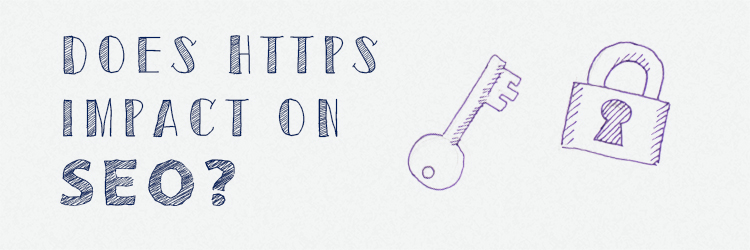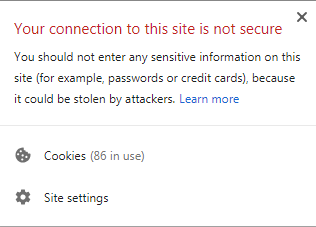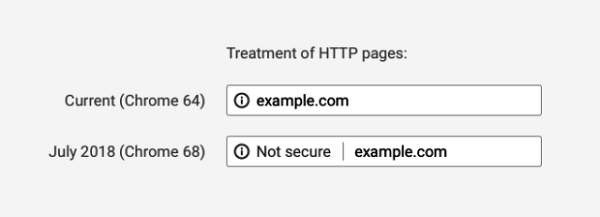What’s HTTPS?
If you take even just a passing interest in the latest website best practices you must have begun to notice website address that begin with http or https. A website that begins https has a valid SSL certificate setup which is a key part of new internet security protocols.
SSL in a abbreviation of ‘secure sockets layer’, which when applied creates an encrypted connection between a website and the hosting service. This ensures any information that passes between them (such as a contact form submissions and payment details) is secure.
In October 2017 we first published a blog discussing how a new Google security update meant that any website that contains any data input (such as a contact form) would begin to be marked as not secure. The release of Chrome 68 in July 2018 will take this to another level with clear not secure warnings being displayed to all users – more on this below.
However, what impact does SSL have on the overall performance of your website in search engines? Clear SEO benefits of SSL are not obvious, and perhaps more thoughts needs to be put into how they increase website security, put your visitors at ease and increase conversion rates – all strong ranking signals!
What’s the overall impact of SSL on SEO?
Search engine rankings
Website security has been part of Google’s algorithms since 2014 and it’s always been the case that it’s impact would increase. In 2015 Google themselves stated that at the very least the use of https is being used as a deciding factor when ranking similar websites. So if one of your local competitors has https and you don’t, it’s quite likely this will a reason for Google to rank theirs ahead of yours.
Visitor numbers
Obviously the result of higher search rankings is more website visitors. Plus, as the awareness of SSL grows internet users will see it as a sign of trust and make them far more likely to visit a secure website over not-secure sites. So SSL will result in higher click through rate from search results – this again has been shown to be a key ranking factor.
Conversions
The whole point of investing in your website will be to ultimately attract new customers and sales. According to a study by GlobalSign, 84% of users would abandon a purchase if they were notified their data was not secure.
If a customer came direct to you and voiced concerns about your order process in person you’d listen and work to overcome their frustrations in order to retain their business, so why should your website be any different?
July 2018 – Google will mark all websites as not secure
In July 2018 Google will release Chrome 68, the latest update to their internet browser. A new part of this will result in any http website being clearly marked as not secure. Currently, users are notified when a website is secure, with any un-secure website being marked with an exclamation mark, which when clicked, informs the user the connection is not secure:
However, with the roll out of Chrome 68 a not warning will be clearly displayed:
Image from Search Engine Land
Similar warnings are also being rolled out across the latest version of both Firefox and Edge.
Be proactive
So while the not implementing an SSL won’t alone have an immediate negative effect on search rankings it could result in poor performance due to:
- Similar sized competitors with SSL ranking above you
- Reduce click through rates from search results
- Users greeted with not secure warnings when they visit your website
- A large majority of potential orders being abandoned
Remember when thinking about your own website how you would judge an in secure website you’re visiting. Would you purchase a product online or submit your personal details after you’ve been warned the browsing environment is not secure? We’d highly doubt it.
Be proactive with your website security rather than reacting later when you’re already behind the competition!


